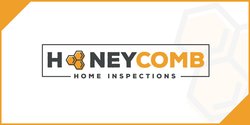
Why Hire a Home Inspection Service?
So, what all do we inspect? Given that all homes are different, it is nearly impossible to provide a complete list of what each home will or will not be inspected for. However, outlined here are some of the key things we look for while inspecting your home.
Roof
We inspect the roof covering material and condition in relation to active leaks. Depending on the home, we may also describe gutters, downspouts, vents, flashing, skylights and roof accessibility. We likely will not physically get on the roof to do this inspection, but in some cases that will be feasible.
Exteriors
We will walk and describe several items on the exterior of a property. Exterior wall covering materials, walkways, driveways, stairs, steps, ramps, exterior doors, eaves, soffits and a sampling of windows. We will also describe anything adversely affecting the structure, like vegetation or poor grading.
Basement, Crawlspace and Foundations
The foundation of your home will be inspected either externally or internally. As long as the inspector has safe access, basements and crawlspaces will also be inspected. We will be looking for things like active water penetration or soil that could cause damage to the foundation. Foundation movement is not uncommon and can show up in the form of cracks, unlevel floors or out of square door framing. We will detail these items in the report for your review.
Plumbing
Plumbing is an area that often gets overlooked in a home because it is not out in the open. In our inspection, we will inspect and describe several key plumbing elements such as your main water supply shut off valve, water heaters, fuel shut off supply, sinks, tubs toilets and internal water supply through running facets.
Heating and Cooling System
In Michigan, heating and cooling is important! Your inspector will inspect both the heating cooling systems and it’s normal operating controls in the house. The location, energy source, along with the heating and cooling methods of the home, will be described in the report as applicable.
Electrical
The electrical in a home will be inspected for usability and safely. There are several items related to electrical our inspectors will review, some including the electrical meter and base, main service disconnects, GFCI locations, panelboards and a number of switches and lighting fixtures.
Attic Spaces
In attic spaces, we are primarily looking for ventilation and insulation of the home. Proper ventilation can reduce the risk of things like mold occurring in the house, whereas insulation can keep the home warmer or cooler if it has the proper amount.
Interior
As the inspector walks through the home, they will provide inspection on things like doors, windows, floors and ceilings. Condition of these things can give you a comfort of safety and also negotiating power in a real estate purchase.
What We Inspect & What We Do Not Inspect
Honeycomb Home Inspections follows the industry practices of what to inspect, however, sometimes we get questions about why something was not inspected.
Although we will provide you with the most thorough inspection we can, the safety of you and our inspectors is our top priority. There are also times, where you may need to call in an expert. While walking through the inspection feel free to ask questions, we encourage it! Also, if you need an expert, we may be able to provide a referral.
For your awareness, here are some items we do not inspect or functions we do perform:
- Predict the life expectancy on any structure or item
- Perform water tests
- Warranty any item (such as a roof)
- Walk on any area that appears to be unsafe, although we will report this for you
- Move insulation
- Remove ice, snow, or other debris prohibiting observation of an item
- Inspect underground utilities
- Sprinkler systems
- Inspect storm windows, screens, shutters, awnings or fences
- Move stored items
- Identify the span or location, spacing, sizing of bracing, joints or support systems
- Evaluate fuel quality
- Verify thermostat calibration, and related programing
- Light or ignite pilot flames
- Inspect fuel tanks or fuel systems
- Examine electrical currents of any item
- Operate equipment if the exterior temperature is not conductive to doing so (for example, we will not run the air conditioner in the winter).
- Inspect clothes washing and drying machines
- Inspect wastewater systems
*this is a subset of a larger list. A home consists of several components, and our inspectors follow the industry guidelines of what to inspect and what not to inspect. Feel free to give us a call with any questions!